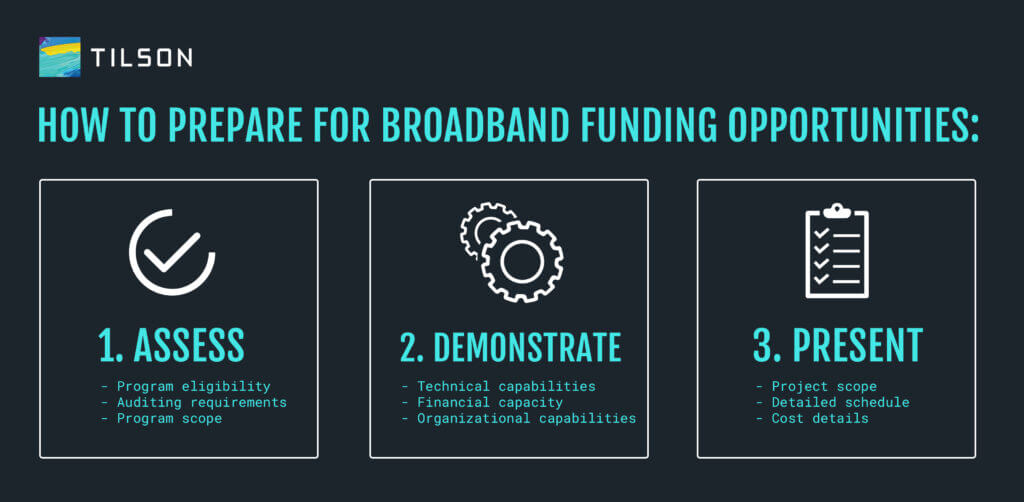The COVID-19 pandemic has driven home the need for expanded high speed internet access that offers Americans reliable access to remote work, distance learning, telehealth, and many other applications. In response to the pandemic, Congress has poured billions of dollars into economic stimulus and relief programs, including those that support end-user broadband costs and fund the deployment of new infrastructure.
In early 2021, we expect to see final rules for several infrastructure programs, including:
These new programs are in addition to existing federal programs like the FCC’s Rural Digital Opportunity Fund, the U.S. Department of Agriculture’s Rural Utilities Service ReConnect and Community Connect programs, the FCC’s E-Rate program, and so-called “rip and replace” funding to extract certain Chinese electronics from American telecommunication networks.
All these programs favor local and regional projects that are “shovel-ready” – but what does that really mean? Practically speaking, submitting an application that is “shovel-ready” requires that an applicant address three fundamental steps:
In this ongoing blog series, we will break down each of these steps. Our goal is to arm applicants with a better understanding of the actions they need to take during each phase, to ensure they can properly evaluate funding programs, design programs that make effective use of public subsidies, and ensure long-term success and sustainability.

Tilson’s broadband consulting team can lead you through the full broadband implementation lifecycle and provide best-in-class consulting from start to finish, tailored to meet and exceed your project goals and maximize the value your community derives from its network investment.
Learn more: https://tilsontech.com/state-broadband-consulting.
Or contact us about your specific broadband deployment needs.

Adam Quinlan serves as Manager of Broadband Consulting at Tilson, leading a team of experienced consultants to plan, design, build, and maintain viable and cost-effective broadband solutions. Adam joined Tilson in 2016, with a strong technical background and leadership experience as a managing partner of a small law firm focused on the intersection of law and technology. He holds a Bachelor’s degree in Economics, a Juris Doctor from the University of Maine School of Law, and is a licensed member of the Maine and Massachusetts Bar.